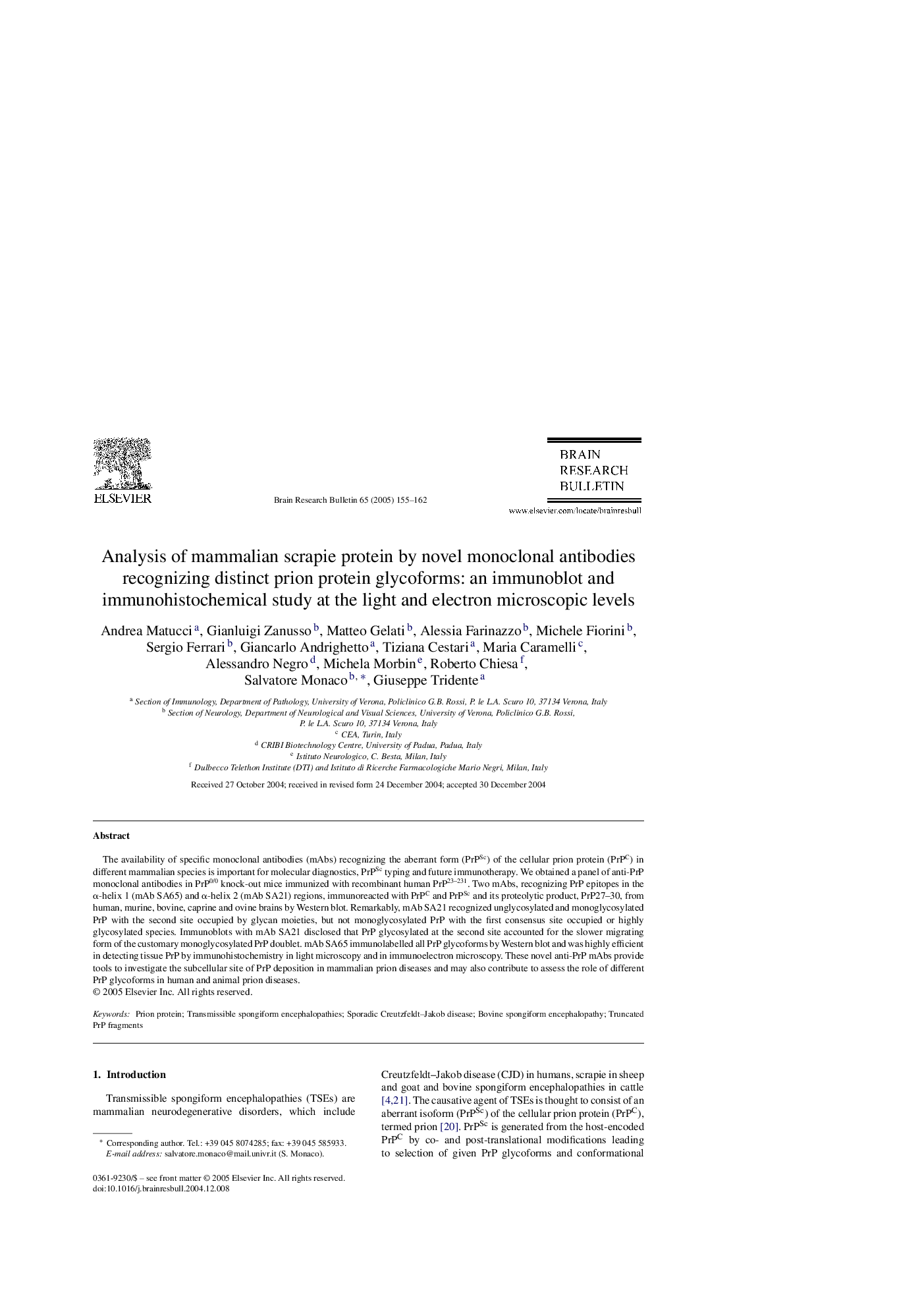| Article ID | Journal | Published Year | Pages | File Type |
|---|---|---|---|---|
| 9409692 | Brain Research Bulletin | 2005 | 8 Pages |
Abstract
The availability of specific monoclonal antibodies (mAbs) recognizing the aberrant form (PrPSc) of the cellular prion protein (PrPC) in different mammalian species is important for molecular diagnostics, PrPSc typing and future immunotherapy. We obtained a panel of anti-PrP monoclonal antibodies in PrP0/0 knock-out mice immunized with recombinant human PrP23-231. Two mAbs, recognizing PrP epitopes in the α-helix 1 (mAb SA65) and α-helix 2 (mAb SA21) regions, immunoreacted with PrPC and PrPSc and its proteolytic product, PrP27-30, from human, murine, bovine, caprine and ovine brains by Western blot. Remarkably, mAb SA21 recognized unglycosylated and monoglycosylated PrP with the second site occupied by glycan moieties, but not monoglycosylated PrP with the first consensus site occupied or highly glycosylated species. Immunoblots with mAb SA21 disclosed that PrP glycosylated at the second site accounted for the slower migrating form of the customary monoglycosylated PrP doublet. mAb SA65 immunolabelled all PrP glycoforms by Western blot and was highly efficient in detecting tissue PrP by immunohistochemistry in light microscopy and in immunoelectron microscopy. These novel anti-PrP mAbs provide tools to investigate the subcellular site of PrP deposition in mammalian prion diseases and may also contribute to assess the role of different PrP glycoforms in human and animal prion diseases.
Keywords
Related Topics
Life Sciences
Neuroscience
Cellular and Molecular Neuroscience
Authors
Andrea Matucci, Gianluigi Zanusso, Matteo Gelati, Alessia Farinazzo, Michele Fiorini, Sergio Ferrari, Giancarlo Andrighetto, Tiziana Cestari, Maria Caramelli, Alessandro Negro, Michela Morbin, Roberto Chiesa, Salvatore Monaco, Giuseppe Tridente,
